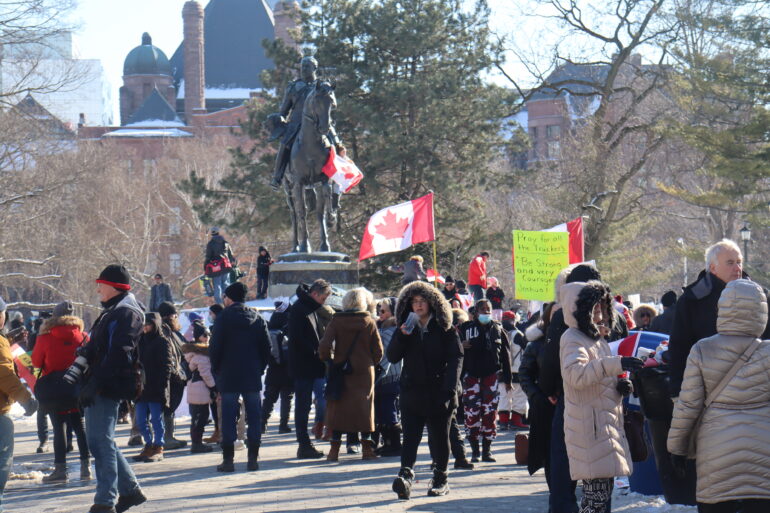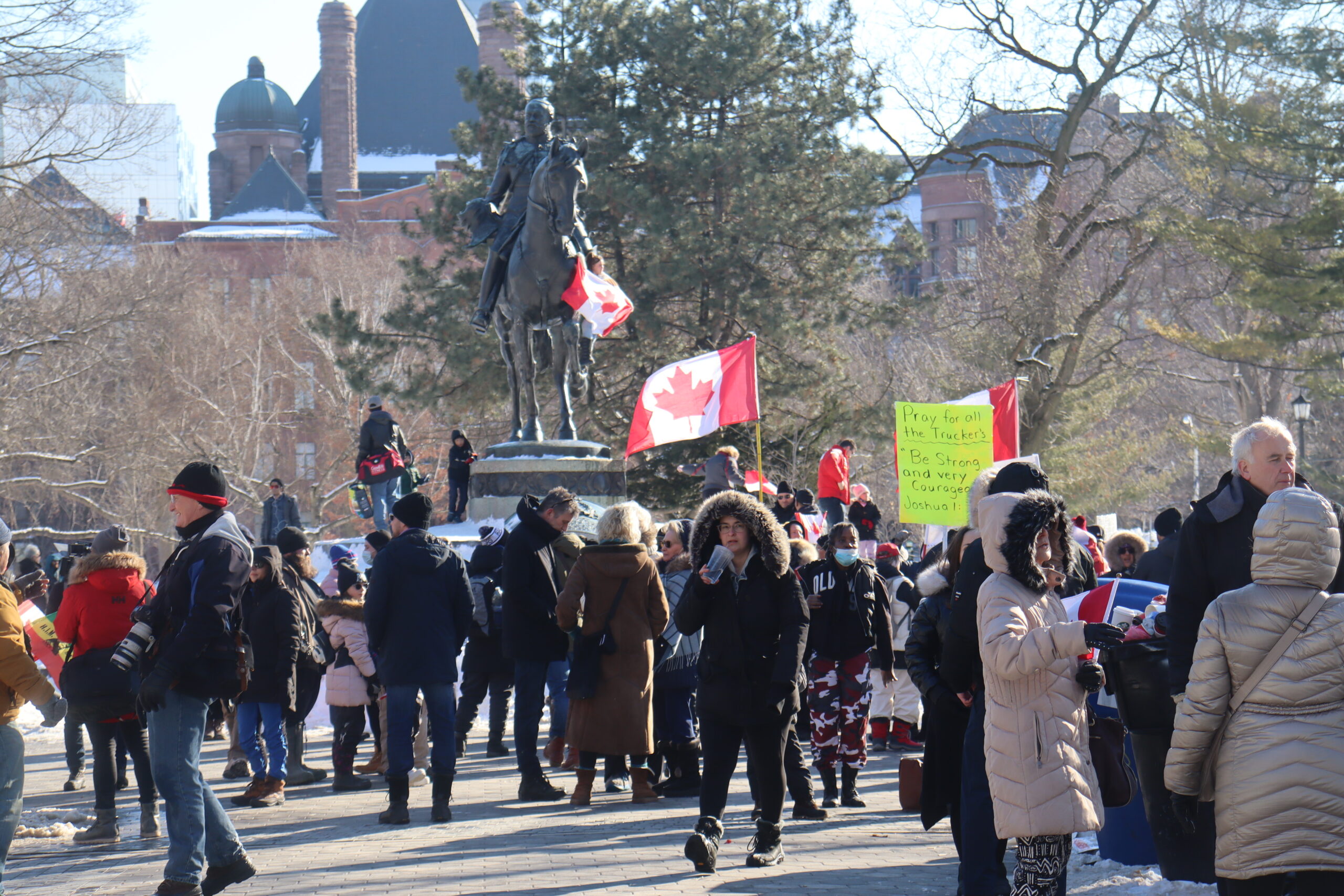The province of Ontario recorded the lowest number of COVID-19 hospitalizations since early January on Sunday even as thousands of protesters took the streets in Ottawa and Toronto to protest against the vaccine mandates.
“I don’t expect necessarily that the trucker’s event will spike the number of cases,” said Dr. Mark Berber, an Associate Professor at the University of Toronto for the Temerty Faculty of Medicine.
Thousands of cross-country truckers gathered in both Ottawa and near Queen’s Park over the weekend to protest against the mandatory vaccination policies brought by the federal government earlier this month.
“I don’t know what the government should do. I am vaccinated by choice, but I believe it’s everyone’s choice,” a protester at Queen’s Park on the weekend named Megan told Humber News.
“We are all Canadians and we are allowed to have a peaceful protest, anyone choosing hate is wrong,” said Megan who would not give her last name.
Unvaccinated Canadian truckers who cross the U.S.-Canada border now have to quarantine once they have returned home.
Berber commented on COVID infections in light of the protests.
“There have been many large gatherings in various parts of the world that have been named super spreader events, however following these large-scale gatherings we haven’t seen an increase in the number of cases,” said Berber.
The province recorded 2,230 people in hospitals with COVID-19. The number went down from 2,634 on Friday and 2,493 on Saturday. Ontario also saw a decrease in the number of people in intensive care. The number dropped below 500 for the first time in a month.

“It’s also important to recognize that the Omicron variant of COVID-19, which is the variant that is currently in Canada, is already so contagious that most people are going to get it whether or not they go to an event like the trucker’s convoy,” said Berber.
Data should not just focus on the number of cases but also the medical history of the patients being hospitalized. “The province should be looking at who is being hospitalized,” said Berber.
Counting the number of cases, Berber feels, creates unnecessary panic amongst people and is not helpful to the Canadian people.
“What the population needs to know is: What are the numbers of hospitalizations? What are the numbers of death? And what are the characteristics of the people that are being hospitalized and dying? What are their ages? How obese are they? What are their underlying conditions,” said Berber.
“Hospitalizations and deaths are the important metrics, not cases,” Berber told Humber News. “It has become meaningless to count cases with the advent of the Omicron variant.”
If the province continues to see a decrease in the numbers, it will enter the next step of reopening on Feb. 21. This will see the province increase indoor social gatherings to 25 and outdoor social gatherings to 100.
Capacity at sporting events, theatres, and concert venues will also see an increase of 50 per cent from Feb. 21.


